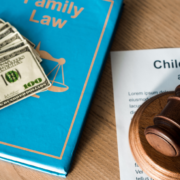Support for Adult Children
A child support obligation typically ends when the minor child is eighteen or graduates high school, whichever is later. However, in certain circumstances the obligation for support may continue past those milestones. One example would be if the child has a disability. Pennsylvania courts have held that the child support guidelines would continue to apply in the instance of a child who, despite age, remains unemancipated or unable to support themselves by virtue of a disability. The court is to determine if an adult child has a mental or physical condition that prevents the child from earning a living wage. Additionally, the court should look to see whether an order of continued support would result in undue hardship on the parents.
In Kotzbauer, 2007 Pa.Super.357 (2007), a Father appealed a support order regarding his then nineteen year old daughter. The daughter had recently been diagnosed with epilepsy which led to seizures, brain malformations and migraine headaches several times a week. While she had a driver’s license, attended community college and had a part-time job, ultimately the trial court held that the evidence presented still established she was unable to support herself. She had poor grades in school due to an inability to focus, often missed work or left early, and relied on her Mother to keep up with all her prescriptions, medical appointments, food, clothing and housing. The majority of states recognize an on-going duty of support if adult children are unable to support themselves due to a demonstrable physical or mental condition impacting their ability to earn a supporting wage.






